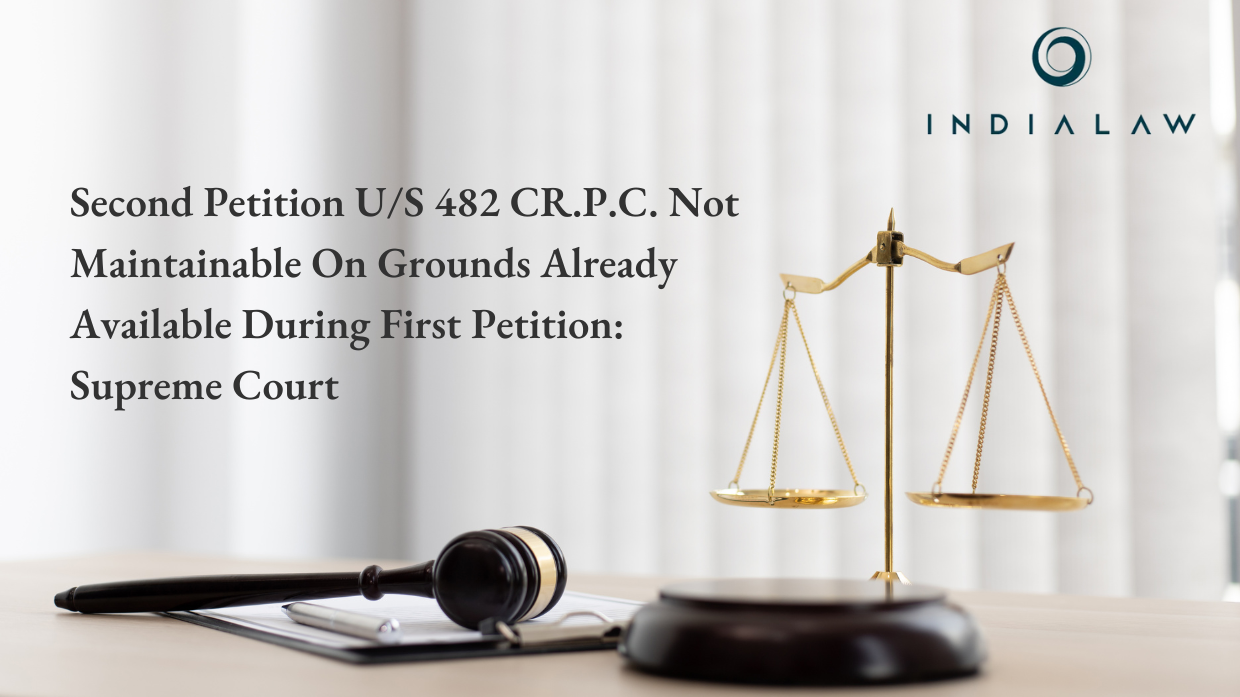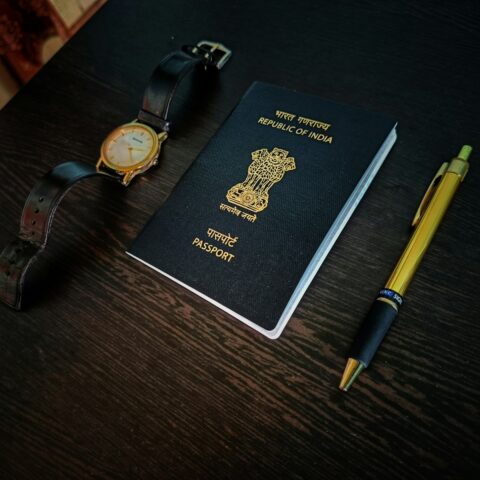Second Petition U/S 482 CR.P.C. Not Maintainable On Grounds Already Available During First Petition: Supreme Court

Recently, the Supreme Court has passed a notable judgment wherein it held that a second petition filed u/s. 482 of the Criminal Procedure Code, 1973 (Cr.P.C.) on grounds that were already available for challenge during the time of filing of the first petition would not stand to be maintainable.
Justices C T Ravikumar and Sanjay Kumar of the Supreme Court clarified that although there is no absolute bar or prohibition against a second petition u/s. 482 of the Cr.P.C. however, it becomes untenable when the grounds for seeking relief were already present during the first petition.
The judgment authored by Justice Sanjay Kumar mentions that “Though it is clear that there can be no blanket rule that a second petition under Section 482 Cr.P.C. would not lie in any situation and it would depend upon the facts and circumstances of the individual case, it is not open to a person aggrieved to raise one plea after the other, by invoking the jurisdiction of the High Court under Section 482 of the Cr.P.C., though all such pleas were very much available even at the first instance.”
The Court added that allowing to file the successive petitions u/s. 482 of the Cr.P.C. by ignoring this principle this would enable an ingenious accused to effectively stall the proceedings against him to suit his own interest and convenience, wherein multiple petitions will be filed u/s. 482 of the Cr.P.C., if not barred. This would lead to abuse of the procedure of law and the same cannot be permitted.
The case under consideration by the Supreme Court involved an Appeal against an Order of the High Court of Allahabad wherein the High Court had dismissed a Second Petition filed u/s. 482 of Cr.P.C. by the Appellant.
Bhisham Lal Verma V. State of Uttar Pradesh and another, Special Leave Petition (Crl.) No. 7976 of 2023[i]
Facts in brief
The background of the instant case is that a complaint was filed by the Joint Director, State Urban Development Authority, Uttar Pradesh wherein it was alleged that there were certain irregularities in the construction of toilets under the Integrated Low-Cost Sanitation Scheme and that involved misappropriation of public funds by the persons. With this regard, the Appellant was facing charge under the Indian Penal Code,1860 (IPC) and under Sections 7 and 13 of the Prevention of Corruption Act, 1988 (PC Act).
A first petition was filed by the Petition (Now Appellant) u/s. 482 of the Cr.P.C., and in the said petition the Order of the Uttar Pradesh government sanctioning to prosecute the Petitioner for the alleged offences was challenged. The first petition was dismissed by the High Court permitting liberty allowing him to approach the Trial Court and challenge the sanction order.
A second petition was filed by the Petitioner (now Appellant) u/s. 482 of the Cr.P.C. wherein he sought quashing of the charge sheet and the cognizance order. The second petition was dismissed by the High Court, and it held that it is not open to the party to go on challenging the proceedings one by one.
An Appeal was filed before the Supreme Court against the said Order of the High Court.
The issue before the Court
Is a second petition maintainable u/s. 482 of the Cr.P.C. on grounds that were available for challenge even at the time of filing of the first petition thereunder?
Observations of the Supreme Court
The Supreme Court, declined to interfere with the order of the Allahabad High Court and it emphasized that at the time of filing the first petition u/s. 482 of the Cr.P.C., the charge sheet was already on record, and the Sessions Judge had already taken cognizance. Nonetheless, the same was not contested by the Appellant during the first petition.
Decision of the Court
The Supreme Court held that the filing of the charge sheet and the cognizance thereof by the Court concerned were well before the filing of the first petition u/s.482 of the Cr.P.C., wherein challenge was made only to the sanction order.
That liberty cannot be granted to the Appellant to invoke again the inherent jurisdiction of the High Court regarding the charge sheet and the cognizance order at a later point in time. The Supreme Court held that the order of the Allahabad High Court is incontrovertible on all counts and does not warrant interference.
Tags: Supreme Court, Petition u/s. 482 Cr.P.C., Justice C T Ravikumar, Justice Sanjay Kumar
[i] 2023 LiveLaw (SC) 935
By entering the email address you agree to our Privacy Policy.



